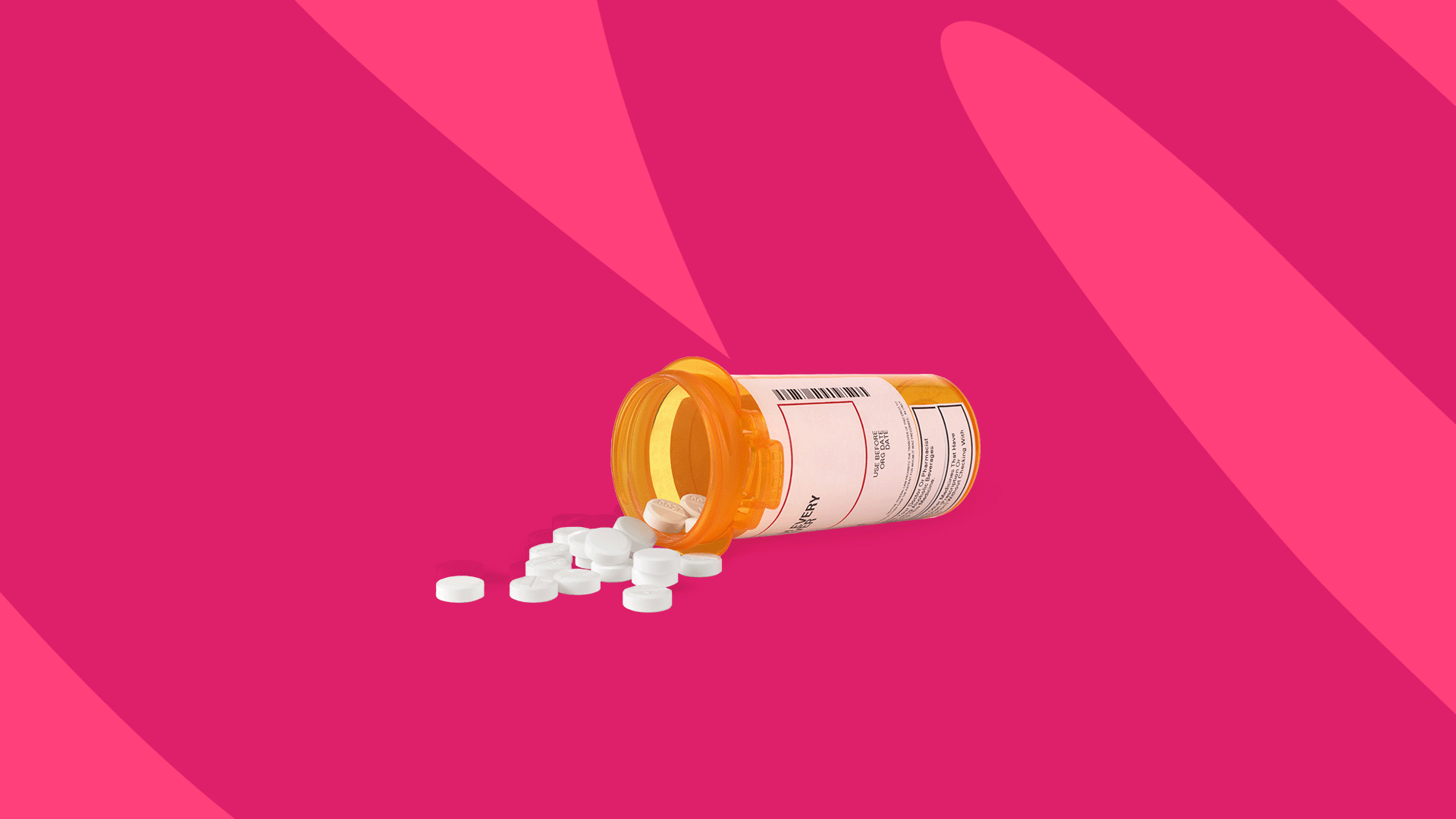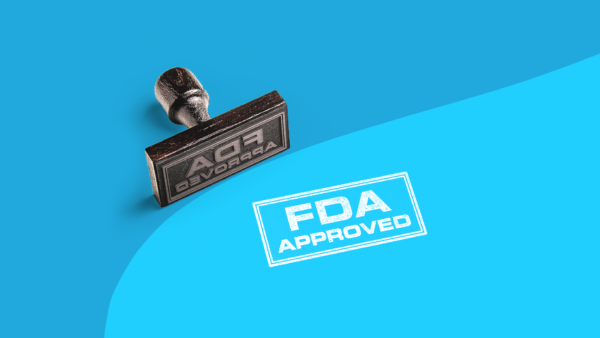Common amiodarone side effects | Serious side effects | Pulmonary toxicity | Thyroid dysfunction | Hypotension | Optic neuritis | Side effects timeline | Contraindications | Warnings | Interactions | How to avoid side effects | How to treat side effects
Amiodarone is a generic prescription drug used to treat severe, life-threatening heart rhythm problems including prolonged fast heartbeats (tachycardia) and cases where the bottom chamber of the heart beats chaotically (ventricular fibrillation). Also prescribed as brand-name Pacerone, amiodarone is also used off-label to restore a normal heartbeat in people with atrial fibrillation. Amiodarone belongs to a class of drugs called antiarrhythmics, drugs that change the rhythm of the heart. It also has serious and life-threatening side effects that can occur months after the drug has been stopped. However, amiodarone is only used when a person’s life is at risk and usually when other drugs have failed, so its benefits typically outweigh its risks.
Common side effects of amiodarone
Unfortunately, many of the most common side effects of amiodarone can be serious. One of the most common is amiodarone building up as microdeposits on and within the cornea. Although this may affect up to 90% of people taking amiodarone over the long term, it is not an urgent medical problem. About 1 out of 10 people will experience vision problems such as glare or halos because of these deposits. This could be bothersome so it is an important risk to be considered. The most common side effects of amiodarone are:
- Corneal microdeposits
- Low blood pressure
- Injection site reactions (in people receiving an IV)
- Slow heart rate (bradycardia)
- Severe lung problems
- Heart block
- Skin discoloration
- Thyroid problems
- Sensitivity to sunlight
- Diarrhea
- Nausea
- Vomiting
- Abdominal pain
- Loss of appetite
- Cardiac arrest
- Heart rhythm problems
- Insomnia
- Headache
- Dizziness
- Feeling bad
- Cough
- Flushing
- Constipation
- Decreased liver function
Serious side effects of amiodarone
Usually, serious side effects are the rarest side effects of any drug, but for amiodarone, many are among the drug’s most common side effects. Some are listed above, but the entire list of amiodarone’s serious adverse effects is as follows:
- Low blood pressure
- Slow heart rate
- Severe lung problems
- Thyroid problems
- Heart block
- Cardiac arrest
- Worsening of heart rhythm problems
- Heart failure
- Visual impairment or vision loss
- Liver damage
- Swollen pancreas
- Severe allergic reactions
Pulmonary toxicity
Amiodarone can cause serious lung problems, especially when used long-term. The FDA has mandated that the drug include a black box warning about pulmonary toxicity and swelling in the lungs, a problem that can affect up to 17% of people given amiodarone. According to the FDA, up to 10% of these cases are fatal. Other possible lung problems include asthma (bronchospasm), water on the lungs, pneumonia, scarring (fibrosis), acute respiratory distress syndrome (ARDS), and complete cessation of breathing. People who are most at risk are those with existing lung problems such as chronic obstructive pulmonary disease (COPD).
Thyroid dysfunction
People given amiodarone may experience thyroid problems. Either the thyroid gland produces too little thyroid hormone (hypothyroidism, affecting about 6% of patients) or, less commonly, too much thyroid hormone (hyperthyroidism, affecting 2% of patients). This is because amiodarone has a lot of iodine—about 37% by weight. A maintenance dose of 400 mg daily could deliver 40 to 80 times the usual daily intake of iodine. Because an overactive thyroid could worsen heart rhythm problems, Amiodarone is used cautiously in people with thyroid problems. Regular blood tests may be needed for most patients.
Hypotension
Low blood pressure is one of amiodarone’s most common side effects, especially when it’s given as an intravenous injection. The exact incidence is unknown but may range between 15% and 70%. Because amiodarone widens blood vessels, people taking tablets also may see a drop in blood pressure, but not as severe or life-threatening as those given intravenous amiodarone.
Optic neuritis
Amiodarone is toxic to many tissues in the body including nerves. The longer amiodarone is taken, the more likely it will injure nerves. Although its incidence has not been determined, optic nerve injury due to amiodarone use is common enough that it even has a name: amiodarone-associated optic neuropathy or AAON. It typically manifests after amiodarone has been taken for nine months but can happen at any time during treatment. Injury can range from mild and reversible visual impairment to permanent blindness. Many people will not notice the problem at first. Worse, the damage progresses slowly and may not be noticed for a while. One study showed that as many as 20% of patients who suffered from AAON and stopped amiodarone eventually suffered from legal blindness in at least one eye. For this reason, healthcare professionals typically require people taking amiodarone over the long term to have their eyes regularly examined.
Amiodarone side effects in elderly people
People older than 65 have a greatly increased risk for side effects because of problems eliminating the drug from the body. In young adults, the half-life of amiodarone is 20 days. In seniors, this could be as high as 47 days. With such a long half-life, the drug can build up in the body, increasing its toxic effects on the thyroid gland, nerves, lungs, and other systems. In general, healthcare professionals are very cautious about using amiodarone in seniors, either choosing other less toxic antiarrhythmics or starting amiodarone at the lowest possible dose.
How long do amiodarone side effects last?
When taking many drugs, minor side effects improve as the body gets used to the drug. That’s partly true for amiodarone, but amiodarone’s side effects typically worsen the longer the drug is taken. About 50% of long-term users quit amiodarone because of side effects. Many side effects improve when the dose is reduced or the medicine discontinued. However, with a half-life between 20 and 47 hours, it could take several days or weeks after the last dose of amiodarone for many side effects to improve.
What are the long-term side effects of amiodarone?
Because amiodarone is toxic to many of the body’s tissues, some side effects occur mainly due to long-term use. These include liver damage, lung problems, nerve damage, and vision loss. They can, however, happen at any time during treatment. Some of these may be reversible when the drug is discontinued. Some, like lung scarring or serious vision loss, may be long-term or lifelong conditions.
Amiodarone contraindications
Amiodarone should never be taken by people:
- Whose heart is unable to pump enough blood and oxygen to the rest of the body (cardiogenic shock)
- Who have heart block
- Who have sick sinus syndrome (sinus node dysfunction), a condition in which the heart’s natural “pacemaker” is not functioning properly
- Whose heart beats too slowly and who do not have a pacemaker to correct the problem
- Who are allergic to amiodarone or iodine
Finally, any electrolyte imbalance will have to be corrected before amiodarone can be given.
Pregnancy
Though not contraindicated, amiodarone is considered a high risk when taken during pregnancy. Amiodarone crosses the placenta and can harm the fetus by adversely affecting its heart rate and thyroid function as well as slow its growth and cause problems with brain development.
Breastfeeding
Though amiodarone is not contraindicated for nursing women, it is strongly advised that women stop breastfeeding when given amiodarone. The drug is present in breast milk and could compromise the infant’s growth and viability.
Fertility
Amiodarone may affect fertility in both men and women. The drug may need to be discontinued if pregnancy is being planned.
Children
Amiodarone is not approved by the FDA for use in children or adolescents.
Amiodarone warnings
Healthcare professionals will use caution when prescribing amiodarone, but some situations are riskier than others.
Black box warning
The FDA has attached an extensive set of black box warnings to amiodarone tablets. Please read these warnings in the drug information sheet when taking this drug. The FDA warns that amiodarone injections or tablets be used only for life-threatening ventricular arrhythmias or rapid heartbeats and should only be started in a clinical setting capable of heart resuscitation. The warning also points out that amiodarone could cause serious and potentially fatal lung problems, damage the liver, and worsen heart rhythm problems.
Cautions
Because of potential problems involving the heart, lungs, liver, nerves, or eyesight, amiodarone is used cautiously in people with:
- A heart rhythm problem called long QT syndrome
- Slow heart rate
- Congestive heart failure
- A pacemaker
- Degenerative liver diseases such as cirrhosis
- Lung disease
- Thyroid disease
- Any nerve disease including peripheral neuropathy
People on amiodarone who are undergoing surgery with general anesthesia will need to be monitored carefully before, during, and after surgery. Because amiodarone can build up on or inside the cornea, ophthalmologists are wary about performing eye surgery. Refractive laser surgery like Lasik is strongly discouraged or contraindicated in people taking amiodarone tablets.
Abuse and dependence
Amiodarone is not associated with abuse, physical dependency, or withdrawal.
Overdose
Immediately seek emergency medical care if too much amiodarone is taken. The effects can be fatal, particularly low blood pressure, heart block, slow heartbeat, and liver damage. No maximum dosage has been defined, so consider the dosage prescribed as the maximum dose allowed.
Amiodarone interactions
Drug interactions are a potential source of side effects when taking amiodarone.
Most importantly, amiodarone is used cautiously or contraindicated in drugs that can also affect the heart’s rhythm, including:
- Other antiarrhythmic drugs
- Beta blockers
- Calcium channel blockers
- Azole antifungal medications
- Fluoroquinolone or macrolide antibiotics
- Tricyclic antidepressants
- Opioids
- Some antipsychotic medications
- Digoxin
Some drugs interfere with the body’s ability to break down amiodarone. As a result, amiodarone levels rise in the body, increasing the risk of side effects and toxicity. Most of these drugs are used cautiously, but some are contraindicated:
- Azole antifungals
- Macrolide antibiotics
- Fluoroquinolone antibiotics
- Some HIV/AIDS and hepatitis antiviral drugs
- Cimetidine, a stomach acid reducer
- Grapefruit juice
Finally, amiodarone enhances the blood-thinning effects of the anticoagulant warfarin, so warfarin doses will need to be lowered to prevent bleeding problems.
How to avoid amiodarone side effects
Unfortunately, it’s difficult to evade side effects when taking amiodarone. A few tips, however, could help minimize the risk.
1. Follow all instructions
Take amiodarone tablets exactly as instructed by the hospital or prescriber. Take the precise dose at the time you are told to. It’s especially important not to inadvertently take too much medicine. Use an app or alarm to make sure doses are taken on time.
2. Do not take a missed dose
If a dose is missed, skip that dose. Wait until the next dose is scheduled and take that dose. Never take extra medicine to make up for a missed dose.
3. Tell the prescriber about all medical conditions
Unlike many other prescription drugs, amiodarone is rarely prescribed by anyone except a cardiologist, a doctor who specializes in heart care. It is rarely prescribed without an extensive medical history and tests that include blood tests and chest x-rays. Still, make sure the prescriber knows about every single medical condition, particularly:
- Slow heart rate
- Heart disease
- Low blood pressure
- Liver problems
- Lung or breathing problems
- Thyroid problems
- Diarrhea
- Low electrolyte levels
- Implanted pacemaker or defibrillator
- Upcoming surgery
- Pregnancy or plans to become pregnant
- Breastfeeding or plans to breastfeed
4. Do not take drugs or supplements without talking to a doctor
Again, the prescriber should already know about all drugs being taken before amiodarone is prescribed. However, these drugs may change, so keep the prescriber informed about any new prescription drugs, over-the-counter medications, or dietary supplements being taken, especially:
- Antibiotic or anti-infective therapies (even if short-term)
- Heart rhythm drugs
- Blood thinners
- Blood pressure drugs
- Statins
- Opioids
- Antidepressants
- Other drugs that treat mental health issues
- St. John’s wort
5. Keep all follow-up visits
Amiodarone is a very risky medicine, so healthcare professionals will carefully monitor its effects. This will involve follow-up visits, blood tests, ECGs, chest x-rays, and even eye exams. It’s important to keep all appointments so that problems can be spotted before it’s too late.
6. Carry a medication card
As a general rule, it’s a good idea to always carry a medication card or bracelet that indicates you are using drugs like amiodarone. This will help healthcare professionals make the right decisions when there are problems or emergencies.
7. Avoid grapefruit and grapefruit juice
Grapefruits include a compound that can slow the body’s ability to clear amiodarone, raising the risk of side effects.
8. Use sunscreen
Amiodarone makes the skin vulnerable to sunburn, so either avoid going out into direct sunlight or use a high SPF sunscreen and wear protective clothing.
How to treat side effects of amiodarone
Many of amiodarone’s side effects involve serious medical conditions that will require either a doctor’s medical advice or immediate medical attention. It is important to know the signs and symptoms of these possible side effects.
Heart problems
Contact the prescriber or get medical help if there are any signs of heart problems, including:
- Slow heart rate
- Racing heartbeats
- Irregular heartbeats
- Chest pain
- Lightheadedness
- Shortness of breath
- Swelling
- Rapid weight gain
Breathing problems
Amiodarone can cause serious lung problems, so any trouble breathing should be immediately reported to the prescriber or other healthcare professional. Other symptoms of serious lung problems include coughing up blood, wheezing, and chest pain.
Liver problems
Amiodarone can damage the liver, so immediately tell the prescriber about signs of liver damage such as:
- Pain in the upper abdomen
- Dark or smelly urine
- Pale stools
- Yellowing of the skin or eyes
Nerve problems
Contact the prescriber or other healthcare professional at any sign of nerve problems, including:
- Weird skin sensations like tingling or burning
- Numbness
- Weakness
- Coordination problems
- Problems walking
Eye problems
Amiodarone can cause serious damage to the nerves in the eye, so get immediate medical attention if you experience signs of eye problems such as blurred vision, diminished peripheral vision, or pain behind the eyes.
Thyroid problems
Amiodarone can either increase or decrease the activity of the thyroid. Both are serious problems and may worsen heart rhythm issues. Contact the prescriber if any signs of thyroid problems are experienced such as:
- Neck swelling
- Sleepiness
- Weakness
- Restlessness
- Unwanted weight loss or weight gain
- Increased sensitivity to heat or cold
- Trouble concentrating
- Sweating
- Irritability
- Tremor
Sources
- Amiodarone, Epocrates
- Amiodarone-associated optic neuropathy: Clinical review, Neuro-Ophthalmology
- Amiodarone hydrochloride drug summary, Prescriber’s Digital Reference
- Amiodarone hydrochloride injection prescribing information, U.S. National Library of Medicine
- Amiodarone hydrochloride tablets prescribing information, U.S. National Library of Medicine
- Amiodarone-induced life-threatening refractory hypotension, American Journal of Case Reports
- Frequency, characteristics, and risk factors for amiodarone neurotoxicity, Journal of the American Medical Association (JAMA)
- Management of amiodarone-related thyroid problems, Endocrinology and Metabolism
- Prescribing amiodarone: An evidence-based review of clinical indications, Journal of the American Medical Association (JAMA)
- Treatment with amiodarone: How to avoid complications, e-Journal of Cardiology











